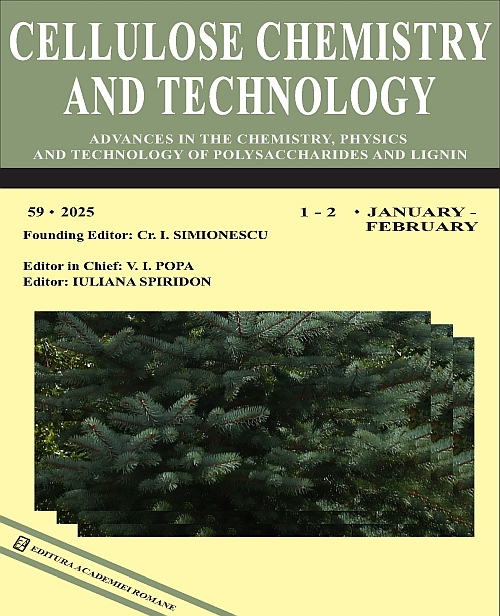|
Title
Tensile, durability and thermal conductivity assessment of jute/Tetracarpidium conophorum reinforced polypropylene composites
Authors
OLUWATOSIN A. BALOGUN, ABAYOMI A. AKINWANDE, ADEOLU A. ADEDIRAN, MALINEE SRIARIYANUN and KONG FAH TEE
Received
January 25, 2025
Published
Volume 59 Issue 3-4 March-April
Keywords
polymer, jute fiber, tensile properties, Tetracarpidium conophorum, polypropylene, reinforced composites
Abstract
The use of natural fibers as a substitute for traditional synthetic fibers in various applications has attracted researchers
due to their inherent characteristics and environmental friendliness, compared to the synthetic options. This study
employed jute fiber and shell particles of African walnut (Tetracarpidium conophorum), in varying weight proportions
of 5-30 wt% and 2-8 wt%, respectively, relative to the weight of polypropylene, in the presence of 2 wt% maleated
polypropylene. The jute fibers were treated in a NaOH solution and used to produce the composites. All developed
samples underwent various tests, and the microstructure of selected samples was examined using a scanning electron
microscope (SEM). The analysis of ultimate tensile strength and tensile strength at break revealed that the sample
reinforced with 4 wt% walnut shell particles (WSP) and 25 wt% jute fiber achieved optimum values, beyond which
interference and agglomeration of the reinforcements became prominent. Both the tensile modulus and density were
enhanced by adding jute fiber and WSP. Water absorption, both before and after soil burial, increased with higher filler
content, while thermal conductivity rose with WSP addition. However, with increasing fiber content, the voids became
more pronounced, resulting in lower thermal conductivity.
Link
https://doi.org/10.35812/CelluloseChemTechnol.2025.59.33
|



